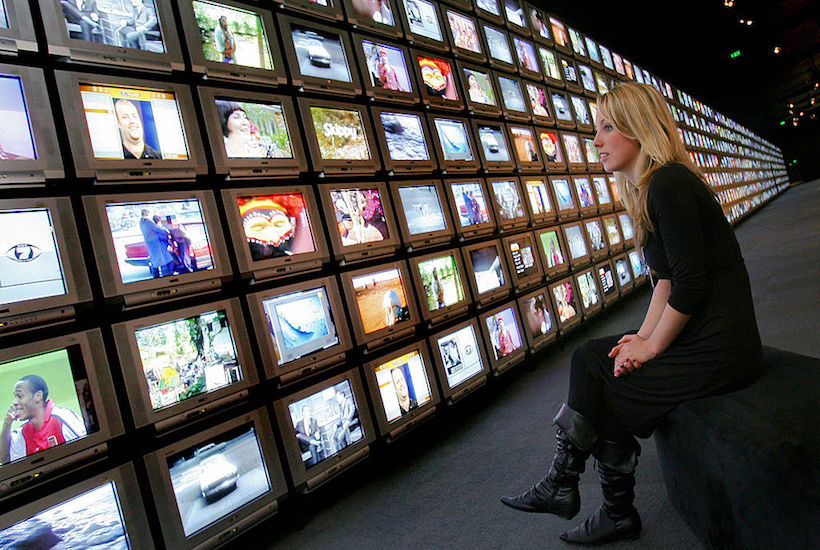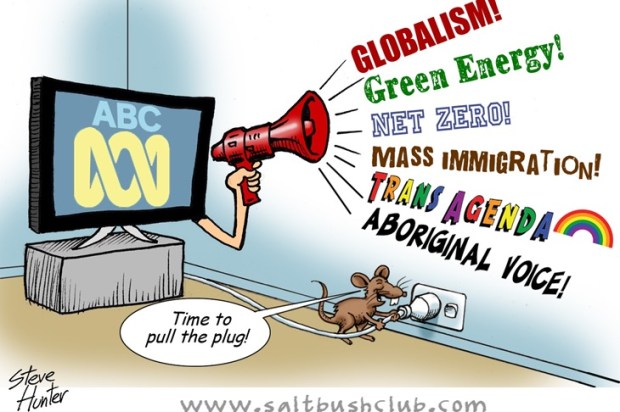One need not be a Hebrew prophet of old to be able to discern the times and give more or less accurate assessments of where things are heading. Plenty of secular prophets have been doing pretty well in warning us about an ominous future — albeit without the divine inspiration.
The dystopian novels by George Orwell (1984) and Aldous Huxley (Brave New World) of course spring to mind here. And debate has taken place as to who was more on the money. While we can learn plenty from each author – especially as we see elements of their grim forecasts increasingly coming to pass – we may have to tip the scales in favour of Huxley.
Sure, I quote from both routinely, and they both gave us important warnings. But the way things are now panning out, Huxley may have had the edge in terms of getting things right. And I am not alone in making such assessments. Many others have remarked on this as well.
Let me draw upon two of them — and another secular voice who warned where the West was heading with clarity and deep insight was Neil Postman (1931–2003), the American cultural critic and media theorist. He penned a number of important volumes which could be mentioned here, including his 1992 book, Technopoly: The Surrender of Culture to Technology.
But the book he may be best remembered for is his 1985 volume, Amusing Ourselves to Death: Public Discourse in the Age of Show Business. In this landmark book, he discussed how the electronic media, especially television, was transforming our culture. He warned that television was dumbing down everything in its reach and that it was turning all public life into mere entertainment. He argued that there is no such thing as ‘serious television,’ and that this shift could well lead to our ruin.
Of course, he wrote this incisive warning well before the age of the internet, texting, Twitter, iPads, DVDs, smartphones, streaming services, Facebook, YouTube, giant flat screens — for both indoors and “the outside room” — and so many other revolutions in media, communications and entertainment. If things were bad then, how much worse are they today?
But my main reason for discussing Postman has to do with what he wrote at the beginning of his book. He too discussed Orwell and Huxley and how their works of fiction so accurately predicted where and how things would develop. And he also assigns the prize to Huxley:
What Orwell feared were those who would ban books. What Huxley feared was that there would be no reason to ban a book, for there would be no one who wanted to read one. Orwell feared those who would deprive us of information. Huxley feared those who would give us so much that we would be reduced to passivity and egoism. Orwell feared that the truth would be concealed from us. Huxley feared the truth would be drowned in a sea of irrelevance. Orwell feared we would become a captive culture. Huxley feared we would become a trivial culture, preoccupied with some equivalent of the feelies, the orgy porgy, and the centrifugal bumblepuppy.
As Huxley remarked in Brave New World Revisited, the civil libertarians and rationalists who are ever on the alert to oppose tyranny ‘failed to take into account man’s almost infinite appetite for distractions.’ In 1984, Orwell added, people are controlled by inflicting pain. In Brave New World, they are controlled by inflicting pleasure. In short, Orwell feared that what we fear will ruin us. Huxley feared that what we desire will ruin us. This book is about the possibility that Huxley, not Orwell, was right.
Let me bring in one other important commentator to the discussion. I refer to Rod Dreher and his new book, Live Not By Lies. The American Christian writer and commentator especially came into prominence back in 2017 with the release of his widely discussed book, The Benedict Option.
The title of his new book comes from an essay by Solzhenitsyn, the last one he wrote before being evicted from the Soviet Union in 1974. In the piece, he told the Russian people that totalitarianism is built on lies and the people’s fear. The way to defeat it is to not live by lies.
Dreher warns that a soft totalitarianism is well underway in the West, accomplished by two main means: so-called social justice, where group identity trumps the individual, and by technological surveillance. As to the former, the West is, of course, awash in identity politics:
It encourages people to identify with groups – ethnic, sexual, and otherwise – and to think of Good and Evil as a matter of power dynamics among these groups. A utopian vision drives these progressives, one that compels them to seek to rewrite history and reinvent language to reflect their ideals of social justice. Further, these utopian progressives are constantly changing the standards of thought, speech, and behaviour … Under the guise of “diversity,” “inclusivity,” “equity,” and other egalitarian jargon, the Left creates powerful mechanisms for controlling thought and discourse and marginalizes dissenters as evil.
That of course ties in with the latter. Dreher looks at how technology and totalitarianism combine to create Big Brother statism. The Chinese social credit system is a clear case in point: it “automatically tracks the words and actions, online and off, of every Chinese citizen, and grants rewards or demerits based on obedience.” Doing what the State approves of will get you a higher social credit score, while doing what it frowns upon will result in a downgrade.
Dreher asks if it can happen here: “Of course it can. The technological capability to implement such a system of discipline and control in the West already exists.” Simply think how states have run with corona this year: surveillance and compliance are at an all-time high. One can barely check into a shop or a restaurant for example without signing in, or using your smartphone QR code to get access to goods and services.
As one recent Australian headline put it, “The QR code has turned COVID-19 check-ins into a golden opportunity for marketing and data companies.” Crony capitalism – the wedding of Big Business and Big Government – will ensure this data does NOT remain private. And of course all the talk of vaccine passports and the like is no longer the stuff of conspiracy theories.
But Dreher also discusses Orwell and Huxley, and he too tips Huxley:
Soft totalitarianism exploits decadent modern man’s preference for personal pleasure over principles, including political liberties. The public will support, or at least not oppose, the coming soft totalitarianism, not because it fears the imposition of cruel punishments but because it will be more or less satisfied by hedonistic comforts. Nineteen Eighty-Four is not the novel that previews what’s coming; it’s rather Aldous Huxley’s Brave New World. The contemporary social critic James Poulos calls this the “Pink Police State”: an informal arrangement in which people will surrender political rights in exchange for guarantees of personal pleasure.
Soft totalitarianism … makes use of advanced surveillance technology not (yet) imposed by the state, but rather welcomed by consumers as aids to lifestyle convenience—and in the postpandemic environment, likely needed for public health. It is hard to get worked up over Big Brother when you have already grown accustomed to Big Data closely monitoring your private life via apps, credit cards, and smart devices, which make life so much easier and more pleasurable. In Orwell’s fictional dystopia, the installed “telescreens” in private homes to keep track of individual’s lives. Today we install smart speakers into our homes to increase our sense of well-being.
Hmm, why did 2020, the year of the Rona, seem to bring all this together in frightening reality?
Bill Muehlenberg is a Melbourne cultural commentator.
Got something to add? Join the discussion and comment below.
Get 10 issues for just $10
Subscribe to The Spectator Australia today for the next 10 magazine issues, plus full online access, for just $10.


























Comments
Don't miss out
Join the conversation with other Spectator Australia readers. Subscribe to leave a comment.
SUBSCRIBEAlready a subscriber? Log in